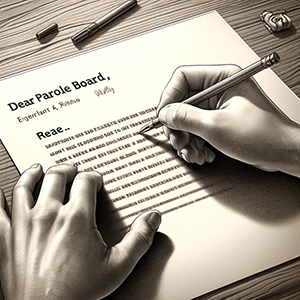In the heart of Ohio’s criminal justice system lies an issue that has persisted for decades, largely unnoticed or insignificant to the public eye – the state pay for prison jobs. Since the late 1980s, the compensation for incarcerated individuals who work within the prison system has remained stagnant. While the outside world has seen adjustments to minimum wage and a fluctuating cost of living, those of us who are behind bars are grappling with a compensation structure that fails to keep up. I wish to address the inequities of this system, its impact on incarcerated individuals, and the ethical considerations it raises.
The state pay for prison labor jobs was established in an era long past, yet it has resisted change throughout the years. While minimum wage and the cost of living have evolved, the average pay for prison labor has remained virtually unchanged. This discrepancy has given rise to a concerning divide, leaving incarcerated individuals struggling to sustain ourselves within the prison system.

As it stands, the average state pay for prison jobs in Ohio hover between a mere $18 to $24 per month. The promise of higher compensation exists through incentive pay and involvement in the Ohio Penal Industries, where monthly earnings can potentially surpass $100. However, these opportunities are laden with barriers. Those of us who seek better pay must navigate entry requirements and compete over time for positions, making the prospect of enhanced earnings a distant reality for the majority.
The stagnant state pay has serious implications to our well-being, In a world where the cost of basic necessities has risen dramatically, these meager earnings are barely enough to cover the essentials. Commissary prices, which have soared over time, blamed on inflation and the Russian-Ukraine war, now consume a significant portion of our earnings, leaving incarcerated individuals with inadequate funds to support our physical and mental well-being.
The glaring disparity between the progression of minimum wage and the state pay for prison jobs is evident. The outside world makes adjustments to minimum wages to account for the changing cost of living, while our pay has remained immobile. This incongruity raises ethical questions about the justness of compensating incarcerated individuals far below the economic demands of incarceration and the actual value of labor.
The ethical concerns stemming from this issue are complex. On one hand, proponents rightfully argue that prison labor is an avenue for rehabilitation, offering incarcerated individuals an opportunity to acquire skills and responsibilities. On the other hand, critics would highlight an unfairness compensating incarcerated individuals working full-time with state-wide minimum wages. What employer, or employee for that matter, would knowingly agree to $18 to $24 monthly terms of employment?
Addressing the challenges posed by stagnant state pay requires a reevaluation of state prison policies. An alignment of state pay with the demands of affording necessities could bring a more equitable system, ensuring that incarcerated individuals are fairly compensated for our labor. Furthermore, offering skill development opportunities and programs that facilitate reentry into the workforce upon release could provide a pathway toward self-sufficiency and reentry success.
The issue of stagnant state pay calls not just for society’s attention but action. It’s a matter of justice, equity, and the respect that society extends to those of us within the criminal justice system. As the world progresses, so should our collective efforts to create a fair and just environment for all. By advocating for policy changes and ethical considerations, we all can pave the way for a system that not only supports habilitation practices that transforms individuals but also upholds the dignity of all of us who are seeking a chance of redemption behind bars.
To Live for the People.

Founder & CEO of the Tranquil Earth Alliance






